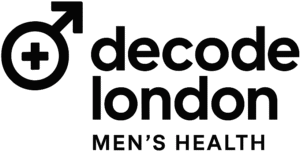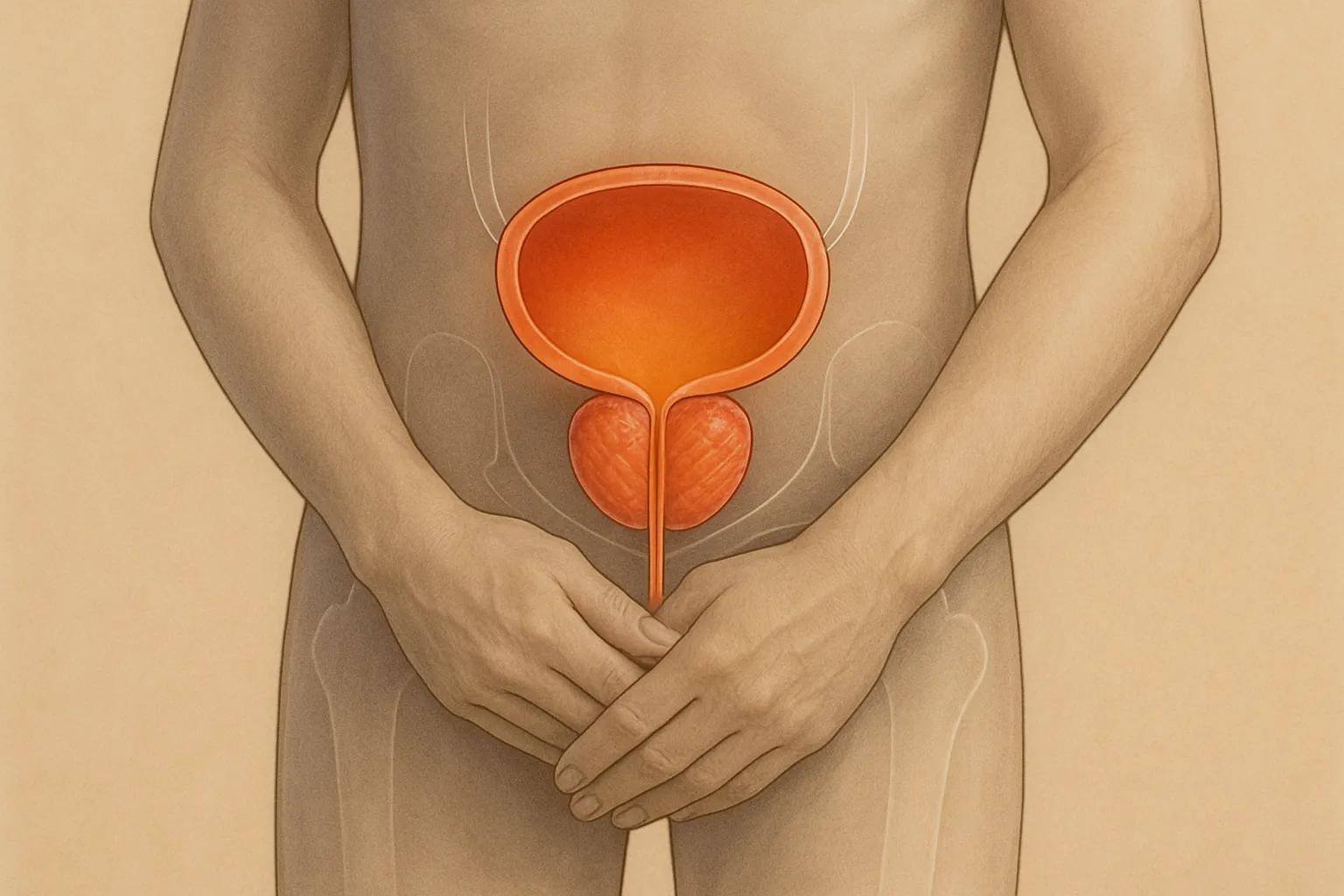Why Routine Health Checks Matter
Many men pride themselves on pushing through pain, skipping doctor visits, and toughing it out. But while resilience has its place, ignoring your health can cost you dearly in the long run. The truth is, most serious health issues don’t begin with obvious symptoms. They develop silently—and by the time signs appear, the damage may already be significant.
That’s why annual health screenings are so important. Just like routine maintenance keeps your car running smoothly, regular checkups and lab work can help you catch issues early, manage risks, and make better decisions about your lifestyle.
From your 20s to your 60s and beyond, preventive healthcare should be a part of your strategy—not just when you feel sick, but to stay strong, sharp, and resilient at every stage of life.
Building Your Annual Health Routine
An annual health check isn’t just one test—it’s a combination of key assessments that give you and your doctor a snapshot of your overall wellness. These checks can help detect everything from high cholesterol and blood pressure to early signs of cancer, diabetes, or heart disease.
Here’s how to approach it:
- Schedule a yearly physical with a primary care provider. This appointment serves as your baseline.
- Track your results in a personal health journal or app. Comparing year-to-year helps spot trends.
- Ask about age-specific or family history-related screenings. These can include genetic tests or specialty assessments.
- Make a checklist. A written or digital list keeps you organized and reduces the chances of missing something important.
Below are the most essential tests every man should consider annually, broken down into core health categories.
1. Heart Health and Blood Pressure
Heart disease is still the leading cause of death among men—and it often develops without obvious symptoms until it’s too late. Early signs like high blood pressure or elevated cholesterol can be caught with simple, non-invasive testing.
Tests to include:
- Blood Pressure Check: Ideal reading is around 120/80 mm Hg. High readings (140/90 or above) increase the risk of stroke and heart disease.
- Lipid Profile (Cholesterol Test): Measures LDL (bad), HDL (good), total cholesterol, and triglycerides. High LDL and low HDL can signal higher risk.
- C-Reactive Protein (CRP): A marker of inflammation that, when elevated, may indicate increased cardiovascular risk.
- Electrocardiogram (EKG or ECG): Often done in men over 40 or with family history, this test checks for abnormal heart rhythms or past silent heart attacks.
If you’re overweight, sedentary, or have a family history of heart problems, these tests should be performed annually—if not more frequently.
2. Blood Sugar and Diabetes Risk
Diabetes, especially type 2, is on the rise in men and often develops without noticeable symptoms. Over time, elevated blood sugar damages blood vessels, nerves, and organs.
Key tests:
- Fasting Blood Glucose: Measures blood sugar after 8 hours of fasting. Normal is under 100 mg/dL.
- Hemoglobin A1C: Averages your blood sugar levels over the past 2–3 months. Ideal results are below 5.7%. Higher values may indicate prediabetes or diabetes.
If you’re over 40, overweight, or have a sedentary lifestyle, these should be checked annually. Early lifestyle changes can reverse prediabetes before it progresses.
3. Hormonal and Sexual Health
Testosterone naturally declines with age, but some men experience symptoms earlier. Fatigue, low libido, weight gain, and mood changes can all be signs of low testosterone (Low T).
Recommended tests:
- Total Testosterone: Checked via blood test, usually in the morning. Normal range varies by age but is typically between 300–1000 ng/dL.
- PSA (Prostate-Specific Antigen): Helps detect potential prostate issues or early-stage prostate cancer. PSA screening is typically recommended after age 50, or earlier with risk factors.
- Thyroid Panel (TSH, T3, T4): Imbalances in thyroid hormones can mimic or worsen testosterone-related symptoms and affect energy and metabolism.
These tests give insight into how your body is functioning hormonally—and how to support optimal energy and performance as you age.
4. Liver and Kidney Function
Your liver and kidneys are essential for filtering waste, processing nutrients, and balancing fluids. Damage can occur silently, often due to alcohol, medication use, or poor diet.
Check the following:
- Liver Function Panel: Measures enzymes (ALT, AST) and proteins (albumin, bilirubin) to assess liver health.
- Creatinine and Blood Urea Nitrogen (BUN): Indicators of kidney function. Elevated levels may signal poor filtration or early kidney disease.
- GFR (Glomerular Filtration Rate): Estimates how well your kidneys are cleaning your blood. Below 60 may indicate early kidney issues.
These are usually included in standard blood work but are especially important if you take medication regularly, drink alcohol frequently, or have high blood pressure.
5. Cancer Screenings
While not all cancer screenings are needed every year, your annual checkup is the time to review which ones apply based on your age, family history, and personal risk factors.
Common screenings to consider:
- Prostate Cancer: PSA blood test and digital rectal exam starting at age 50, or earlier with risk factors.
- Colon Cancer: Starting at age 45, men should undergo a colonoscopy every 10 years, or alternative screenings more frequently.
- Skin Cancer: Full-body skin check with a dermatologist if you have fair skin, high sun exposure, or a personal/family history.
- Testicular Cancer: Most common in younger men (ages 20–40). Self-exams and physician checks help detect early changes.
Discuss your risk profile with your doctor and decide together which tests make the most sense annually.
6. Vision, Hearing, and Dental
While less urgent than some other tests, sensory and oral health play a huge role in quality of life and shouldn’t be overlooked.
Vision:
- Get an eye exam every 1–2 years, especially if you wear glasses or contact lenses.
- Check for glaucoma, cataracts, and age-related macular degeneration after age 40.
Hearing:
- Get a baseline test around age 40 and repeat every few years. Noise exposure and age-related loss are common in men.
Dental:
- See a dentist twice per year for cleaning and screening for gum disease, oral cancer, and cavities.
- Poor dental health is linked to heart disease and systemic inflammation.
7. Mental Health Screening
Mental health is just as important as physical health, yet it’s often overlooked in men’s annual checkups. Depression, anxiety, chronic stress, and burnout affect men at every age—often silently. These challenges don’t always show up as sadness or panic. Instead, they may manifest as:
- Irritability or anger
- Fatigue or lack of motivation
- Difficulty concentrating
- Disrupted sleep or appetite
- Emotional numbness or withdrawal
- Overreliance on alcohol, food, or distractions
A quick mental health screening during your annual visit can open the door to better awareness and support.
What to ask for:
- Depression and anxiety screenings: These are short, validated questionnaires (like PHQ-9 or GAD-7) used by your doctor to assess your mood and emotional state.
- Stress management review: Discuss chronic stress, sleep quality, and coping mechanisms.
- Sleep health: Poor sleep is often tied to stress, apnea, anxiety, or hormonal imbalance.
- Referrals if needed: Don’t hesitate to ask for a recommendation to a therapist, coach, or mental health provider if something feels off.
You don’t need to be in crisis to benefit from a conversation about mental wellness. In fact, proactive emotional care helps prevent burnout and supports healthier relationships, performance, and focus.
8. Immunizations and Boosters
Vaccinations aren’t just for kids. As an adult, keeping your immunizations up to date is a crucial part of disease prevention. Your annual visit is the perfect time to review what’s current, what’s overdue, and what’s recommended based on your age and lifestyle.
Here are the main vaccines men should keep in mind:
- Flu Shot: Annually, especially during fall/winter months. Protects against seasonal influenza and reduces complications.
- Tetanus, Diphtheria, and Pertussis (Tdap): Booster every 10 years. If you never received Tdap as an adult, get it once, then follow with Td.
- COVID-19: Stay current with booster recommendations based on current health guidelines and variants.
- Shingles (Zoster): Two-dose vaccine recommended starting at age 50.
- Pneumococcal Vaccine: For men over 65, or earlier if you have chronic health conditions.
- Hepatitis A and B: Important for those with certain risk factors, travel plans, or healthcare-related occupations.
- HPV (Human Papillomavirus): If you’re under 45 and unvaccinated, it may still be worth discussing with your doctor.
Vaccinations are a powerful tool in preventive care—protecting not only you but also those around you.
9. Lifestyle Review and Habit Tracking
While lab tests provide valuable data, your daily habits are the real foundation of your health. Each year, your checkup should include a lifestyle conversation with your doctor to assess what’s working—and what needs improvement.
Key lifestyle areas to review:
- Nutrition: Are you eating whole, balanced meals? Do you rely heavily on processed food or sugar?
- Exercise: Are you active at least 150 minutes per week? Do you include strength and mobility training?
- Sleep: Are you getting 7–9 hours per night? Is the quality of your sleep consistent?
- Stress management: How do you handle pressure? Do you take time to relax, disconnect, or recharge?
- Substance use: Alcohol, tobacco, and recreational drug use should be discussed honestly without judgment.
- Hydration: Are you drinking enough water daily to support energy, focus, and digestion?
Tools to support habit tracking:
- Journals or digital trackers (like MyFitnessPal, Apple Health, or WHOOP)
- Weekly planning templates to organize meals, workouts, and rest
- Wearable devices that monitor sleep, heart rate, and steps
- Mental wellness apps that guide breathwork, meditation, or gratitude practices
Being honest with your provider—and yourself—about lifestyle habits allows for realistic improvements and measurable results over time.
10. Sexual and Reproductive Health
Your annual health check is also an opportunity to address any concerns related to sexual performance, fertility, or reproductive health—areas many men hesitate to bring up unless asked directly.
What to discuss:
- Erectile function: If you experience changes in performance or libido, talk about it. It may be linked to stress, hormones, or cardiovascular issues.
- Fertility: If you’re planning to start a family, consider a semen analysis or hormone panel to assess reproductive health.
- STI screening: Recommended if you’re sexually active with new or multiple partners. Tests typically include chlamydia, gonorrhea, syphilis, and HIV.
- Birth control options: Review vasectomy, condom use, or other methods depending on your life stage and relationship status.
Sexual health is a critical part of overall well-being and self-confidence. Having open, judgment-free conversations during your checkup helps build a better understanding of your needs.
11. Skin Health and Mole Mapping
Skin cancer is one of the most common cancers in men—especially those who work outdoors, spend time in the sun, or have lighter skin tones. Men over 50 are more than twice as likely to die from melanoma than women, often due to late detection.
What to do:
- Annual skin check by a dermatologist for any unusual moles, lesions, or sun damage
- Self-exams: Once a month, check your skin (including scalp, back, and soles of feet) for changes in size, color, or shape of moles
- Use sunscreen daily, even in winter or cloudy weather
- Wear protective clothing and avoid peak sun hours (10 AM to 4 PM)
Skin health is easy to ignore—but prevention and early detection make all the difference.
Key Questions to Ask Your Doctor Each Year
Your annual checkup isn’t just about testing—it’s also about learning and collaborating. Come prepared with a list of questions or concerns you’ve noticed over the past year.
Consider asking:
- Are there any signs of deficiencies or imbalances in my bloodwork?
- Is my weight or waist circumference a concern?
- Based on my family history, should I be screened for anything additional?
- Are there preventive steps I can take now to avoid chronic disease?
- Are there any habits I should change or improve?
- What supplements (if any) would benefit my current health goals?
- What are the next steps for the coming year?
Taking an active role in your health journey ensures better outcomes, better communication, and more confidence moving forward.
Building a Long-Term Prevention Plan
Health isn’t something you fix when it breaks. It’s something you maintain, monitor, and optimize over time. An annual checkup is your chance to align your daily choices with long-term goals—whether that’s living longer, staying stronger, avoiding disease, or simply feeling better every day.
Here’s how to turn this year’s exam into a long-term plan:
- Review test results and ask for explanations—not just numbers
- Set one or two measurable goals based on your doctor’s input (e.g., lose 10 pounds, improve sleep, reduce cholesterol)
- Schedule follow-up appointments or labs if needed
- Build habits slowly with consistency (rather than intensity for a week)
- Surround yourself with support—friends, partners, coaches, or communities that encourage accountability
Prevention isn’t about fear—it’s about confidence. Knowing you’ve done your part gives peace of mind, reduces anxiety, and keeps you prepared for whatever comes next.
Final Word
Your annual health checklist isn’t just a medical routine—it’s a commitment to yourself. It’s an act of strength, maturity, and responsibility that pays dividends in energy, longevity, and peace of mind.
Whether you’re in your 30s or your 60s, staying proactive about your health means you can perform at your best, show up for your family, and live with fewer regrets.
Don’t wait for symptoms. Don’t rely on guesswork. Invest one hour a year to check in, recalibrate, and keep your body—and life—on track.










